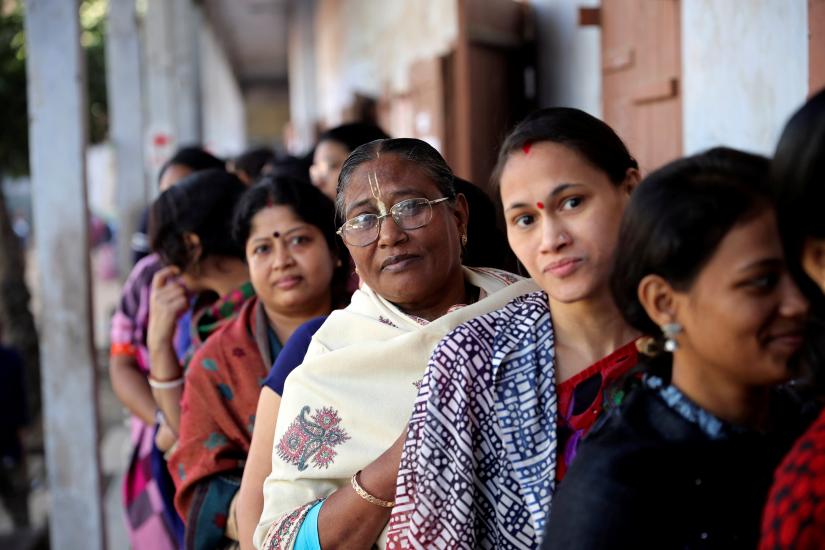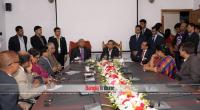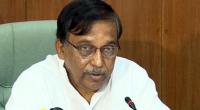 After the Dec 30 election, Indian Prime Minister Narendra Modi was the first head of government of a foreign state to congratulate Prime Minister Sheikh Hasina. It became very clear from the phone call from Modi that India was acknowledging the election and not taking into regard allegations that that vote was not free and fair.
After the Dec 30 election, Indian Prime Minister Narendra Modi was the first head of government of a foreign state to congratulate Prime Minister Sheikh Hasina. It became very clear from the phone call from Modi that India was acknowledging the election and not taking into regard allegations that that vote was not free and fair.
After Modi, Chinese premier also congratulated Hasina, followed by chief ministers of West Bengal and Tripura.
Indian foreign ministry officials are reluctant to entertain any notion that the election was controversial.
A leading official has said that the polls in Bangladesh were participatory and peaceful.
In the last two weeks, three Indian think tanks published reports on Bangladesh election.  Observer Research Foundation (ORF), a Reliance Group funded, think tank maintains close links with the government and is under the Indian ministry of defence. However, they carry out the research independently.
Observer Research Foundation (ORF), a Reliance Group funded, think tank maintains close links with the government and is under the Indian ministry of defence. However, they carry out the research independently.
ORF website features an article by its Senior Fellow Niranjan Sahoo, titled, “Bangladesh elections: Sheikh Hasina wins a brute majority and loses some democracy.”
He bluntly commented in his article that ‘11th General Elections have in fact left Bangladesh poorer in terms of its democratic processes, diversity and freedoms.’
The Awami League, incumbent Prime Minister Sheikh Hasina’s party, and its alliance partners won more than 90 percent seats — leaving the country more polarised than before, reads the article.
It also notes that many analysts believe an unprecedented third term with a vanquished Opposition might drive Hasina’s government towards more authoritarianism and a one-party democracy. Delhi-based think tank Institute for Defense Studies and Analysis (IDSA), which is run by state fund, published an article by its IDSA Research Fellow and prominent Bangladesh Researcher Smruti S Pattanaik.
Delhi-based think tank Institute for Defense Studies and Analysis (IDSA), which is run by state fund, published an article by its IDSA Research Fellow and prominent Bangladesh Researcher Smruti S Pattanaik.
She said in a long analytical piece— “Bangladesh is yet to establish an Election Commission that is seen as neutral and non-partisan and which has the confidence of the opposition to conduct a neutral and credible election.”
She also said, “As the Awami League celebrates its third consecutive term in power, the Kamal Hossain-led Jatiyo Oikyo Front has rejected the electoral verdict accusing the ruling party of large scale rigging. Yet, the Front does not have the strength to organize street protest.
But the question is who will give the leadership to anti-government agitation? If Kamal Hossain decides to give leadership, what will be his position on receiving support from the Jamaat for street battles?” added Pattanaik
“Development and political continuity (unnati r dhara) have their own advantage. At the moment, agitational politics may not succeed against the development story that the government has successfully weaved. People really do not have the stomach for violence, as evident from the violence unleashed by the opposition in 2015 which led to the death of nearly 150 people,” wrote Pattanaik. Senior Fellow of Vivekanda International Foundation (VIF), another Delhi-based think tank, Dr Sreeradha Datta wrote a piece with the title “Bangladesh : Leveraging its Locational Advantage”.
Senior Fellow of Vivekanda International Foundation (VIF), another Delhi-based think tank, Dr Sreeradha Datta wrote a piece with the title “Bangladesh : Leveraging its Locational Advantage”.
In that long article Dr Datta spoke about how two Asian superpowers India and China can leverage strategic benefits due to the geographical location of Bangladesh. He reminded that Bangladesh is a key partner - not only to India for their ‘Neighbourhood First’ policy but also to China for its ‘Act East’ policy which attempts to increase its foothold in its Southeast Asian neighborhood.
“Thus India and China standing firm behind Hasina’s electoral win is not unexpected,” wrote Datta.
He, however, also said, “While in 2014 the opposition led by BNP refused to participate in the election and gave a walk over to Awami, this time around they have none to blame for their dismal performance.”
On the Jatiya Oikya Front, Datta wrote, “The new opposition formation, the National Unity Front, launched by the eminent jurist Kamal Hossain was an effort that was too little and too late. This party had little chance against seasoned candidates and was unable to offer itself as a credible leadership alternative. The BNP, which preferred to campaign under the shadows of its banished leader Khaleda Zia, failed to project itself as a trustworthy choice.”
“While the latest election verdict is questionable, the reality of a leadership crisis in Bangladesh is also evident. Adherence to democratic norms have never been a priority with Bangladeshi leaders and once again Bangladesh’s fragile political climate is evident for all. Under the prevailing circumstances, Sheikh Hasina appears the only stable choice. For now, the Sheikh Hasina led Awami League government is the best bet for India,” concludes Datta.
 National
National
31412 hour(s) 46 minute(s) ago ;
Afternoon 03:40 ; Friday ; May 17, 2024
Indian think tanks on Bangladesh polls
Send
Ranjan Basu, New Delhi
Published : 00:05, Jan 16, 2019 | Updated : 11:27, Jan 18, 2019
Published : 00:05, Jan 16, 2019 | Updated : 11:27, Jan 18, 2019
0 ...0 ...
/hm/tf/
Topics: Top StoriesExclusive
- KOICA donates medical supplies to BSMMU
- 5 more flights to take back British nationals to London
- Covid19: Rajarbagh, Mohammadpur worst affected
- Momen joins UN solidarity song over COVID-19 combat
- Covid-19: OIC to hold special meeting
- WFP begins food distribution in Cox’s Bazar
- WFP begins food distribution in Cox’s Bazar
- 290 return home to Australia
- Third charter flight for US citizens to return home
- Dhaka proposes to postpone D8 Summit
Unauthorized use of news, image, information, etc published by Bangla Tribune is punishable by copyright law. Appropriate legal steps will be taken by the management against any person or body that infringes those laws.
Bangla Tribune is one of the most revered online newspapers in Bangladesh, due to its reputation of neutral coverage and incisive analysis.
F R Tower, 8/C Panthapath, Shukrabad, Dhaka-1207 | Phone: 58151324; 58151326, Fax: 58151329 | Mob: 01730794527, 01730794528


